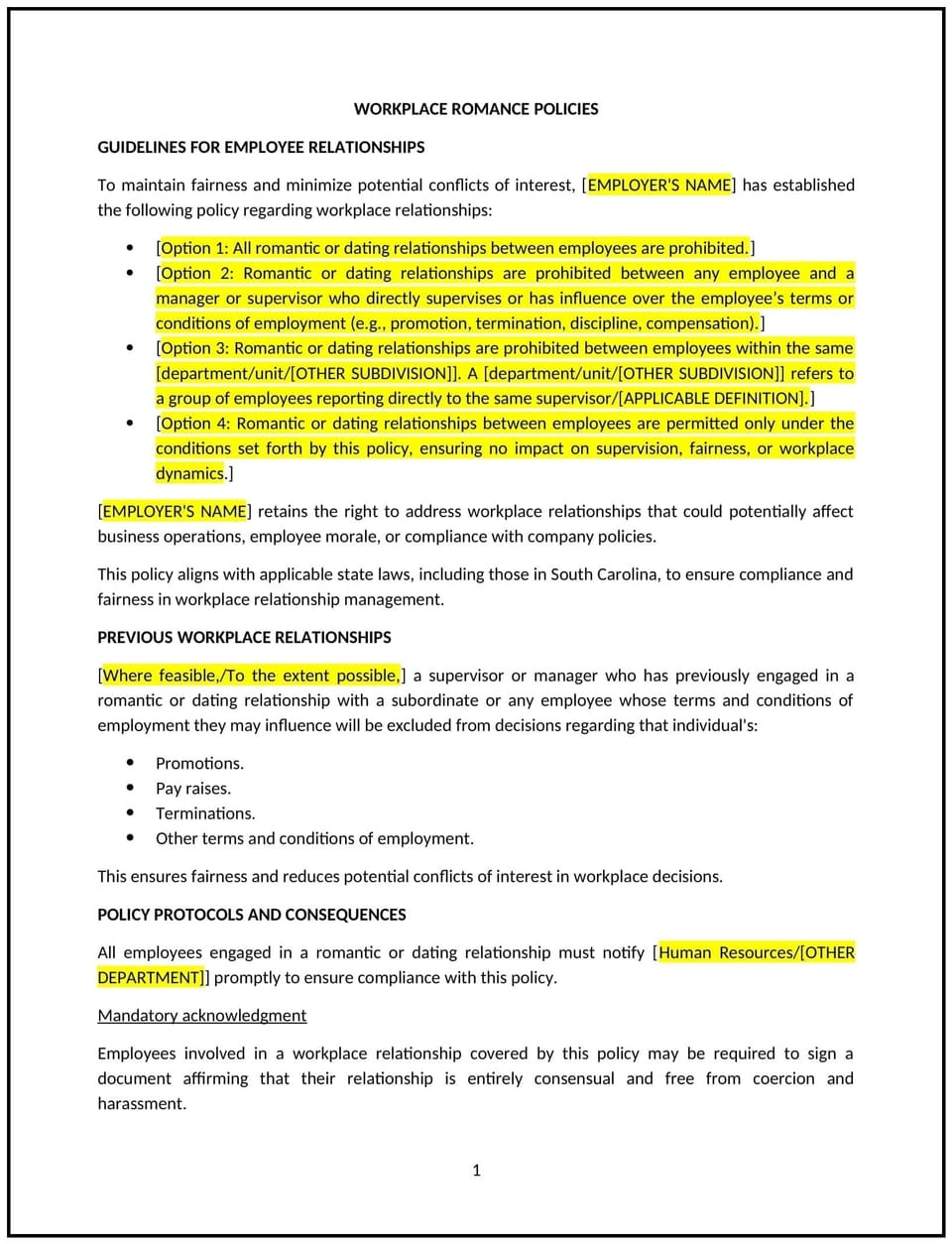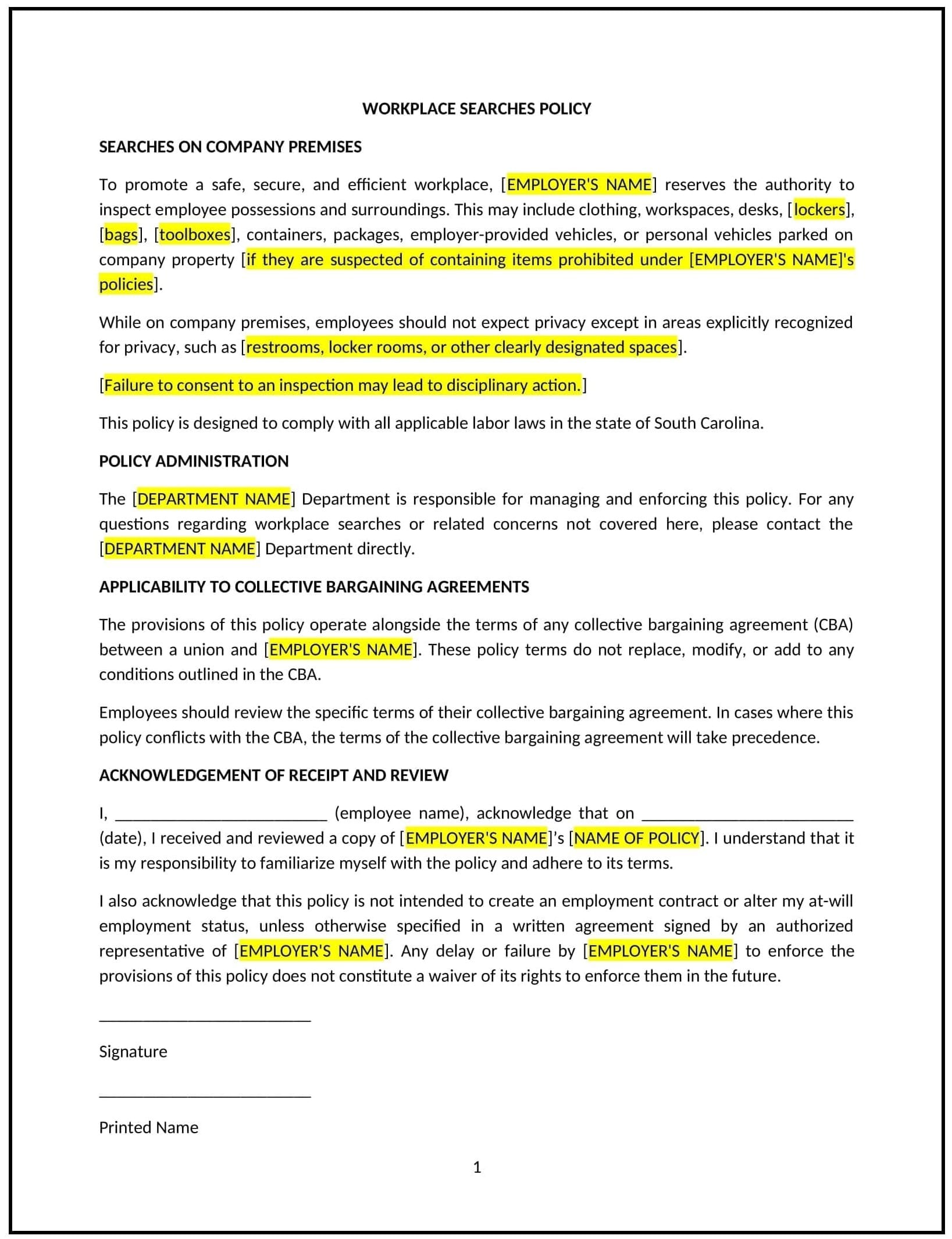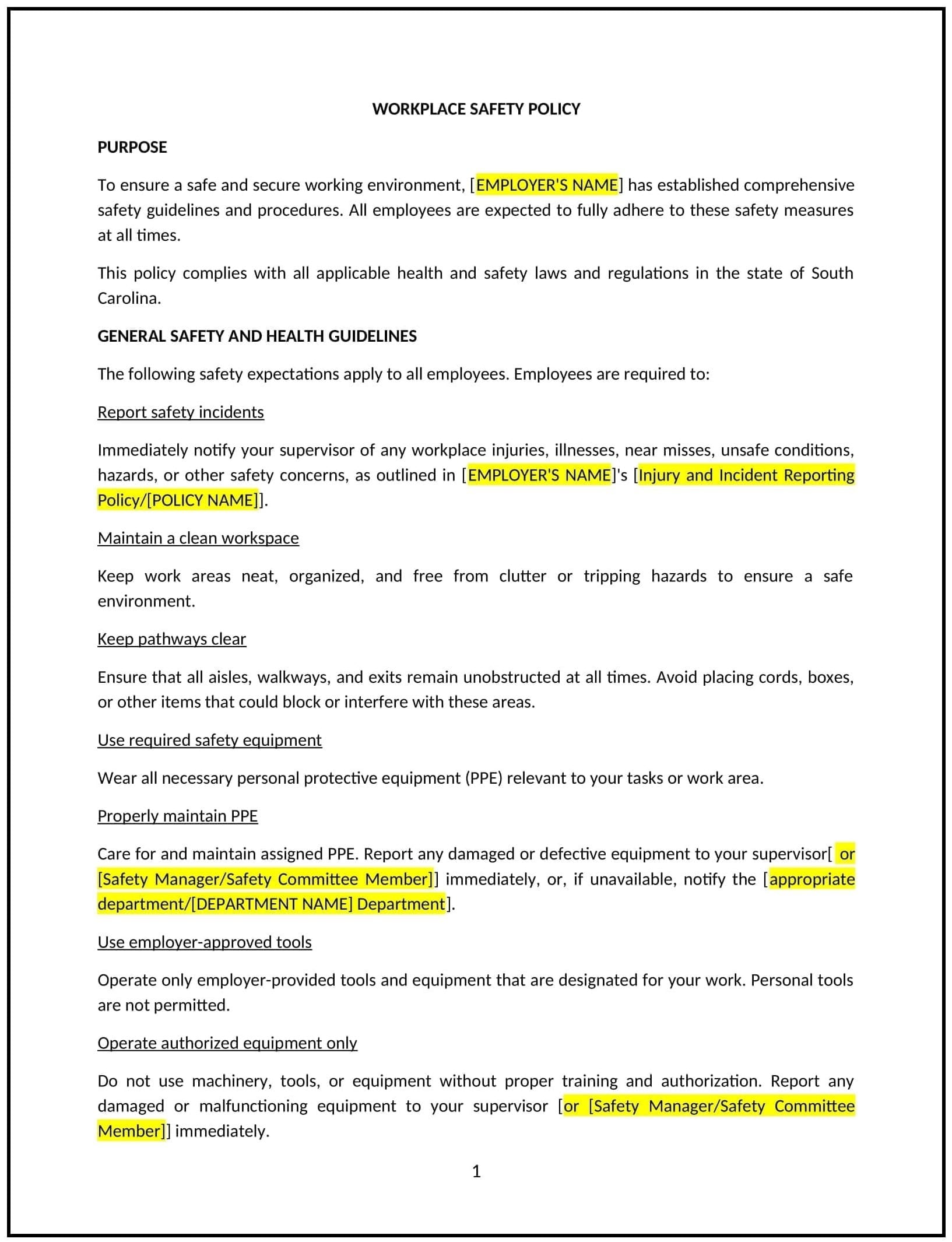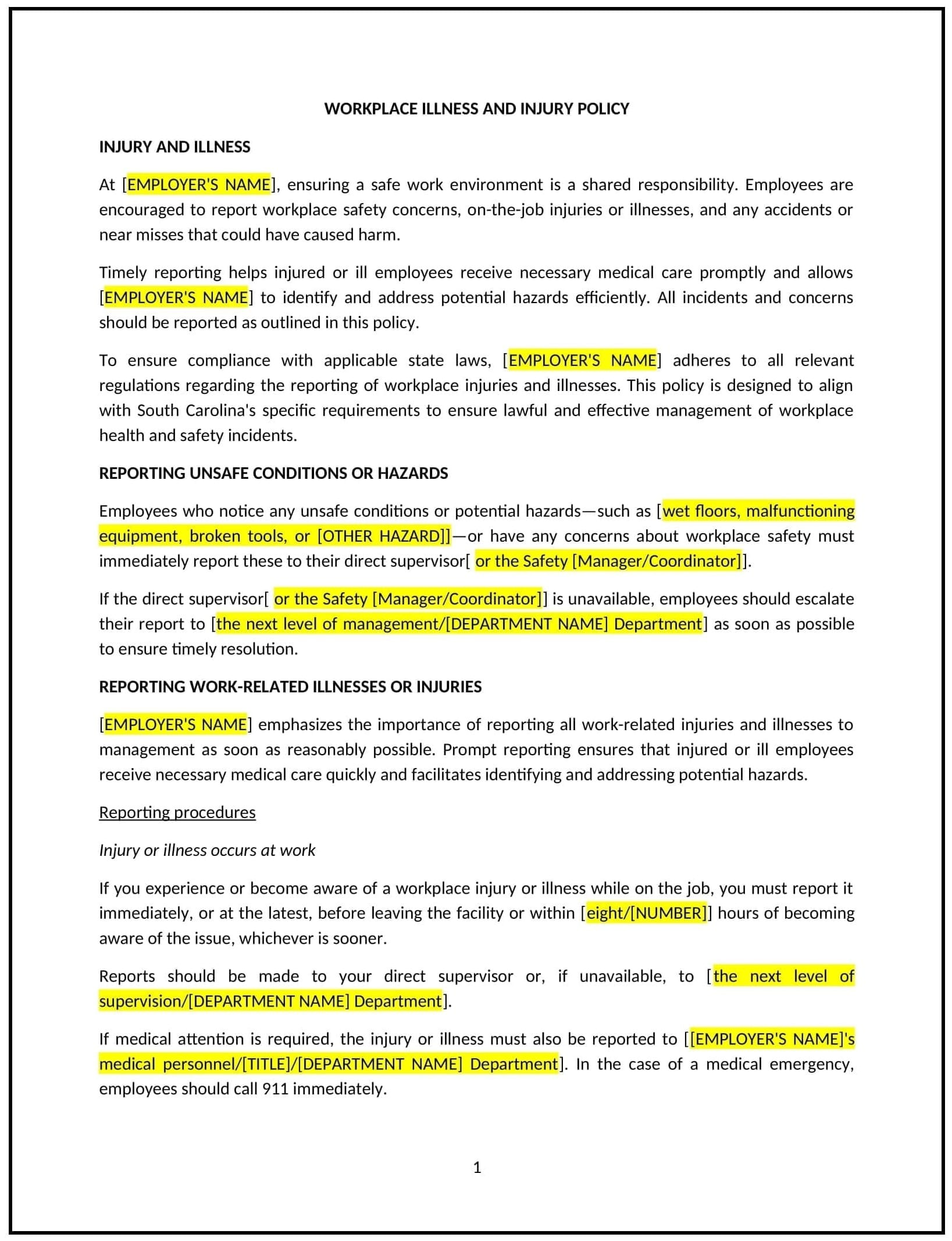Workplace romance policy (South Carolina): Free template

Workplace romance policy (South Carolina)
This workplace romance policy is designed to help South Carolina businesses establish guidelines for managing romantic relationships between employees. It outlines procedures for addressing potential conflicts of interest, maintaining professionalism, and ensuring a respectful work environment.
By adopting this policy, businesses can reduce risks, promote transparency, and align with general best practices for managing workplace relationships.
How to use this workplace romance policy (South Carolina)
- Define workplace romance: Explain what constitutes a workplace romance, such as relationships between employees or between employees and supervisors.
- Address conflicts of interest: Outline procedures for identifying and managing situations where romantic relationships could create conflicts of interest or perceived favoritism.
- Set disclosure requirements: Require employees to disclose romantic relationships that may impact their work or the business’s interests.
- Establish boundaries: Specify expectations for maintaining professionalism and avoiding disruptions in the workplace.
- Train managers: Educate supervisors on handling workplace romance disclosures and maintaining fairness in decision-making.
- Review and update: Assess the policy annually to ensure it aligns with evolving business needs and workplace standards.
Benefits of using this workplace romance policy (South Carolina)
This policy offers several advantages for South Carolina businesses:
- Reduces conflicts of interest: Minimizes the potential for favoritism, bias, or disruptions caused by workplace romances.
- Promotes transparency: Encourages employees to disclose relationships that may impact their work or the business.
- Aligns with best practices: Provides a structured approach to managing workplace romances.
- Builds trust: Demonstrates a commitment to fairness and professionalism in all workplace interactions.
- Enhances productivity: Ensures that workplace relationships do not interfere with job responsibilities or team dynamics.
Tips for using this workplace romance policy (South Carolina)
- Communicate the policy: Share the policy with employees and include it in the employee handbook.
- Provide training: Educate managers on handling workplace romance disclosures and maintaining fairness in decision-making.
- Monitor adherence: Regularly review workplace dynamics to ensure compliance with the policy.
- Address issues promptly: Take corrective action if workplace romances create conflicts of interest or disrupt the work environment.
- Update regularly: Assess the policy annually to ensure it aligns with evolving business needs and workplace standards.
Q: How does this policy benefit businesses?
A: This policy reduces conflicts of interest, promotes transparency, and aligns with best practices by providing clear guidelines for managing workplace romances.
Q: What types of relationships are typically covered under this policy?
A: Relationships may include romantic or intimate relationships between employees or between employees and supervisors.
Q: How can employees disclose a workplace romance?
A: Employees should follow the disclosure procedures outlined in the policy, such as notifying HR or their supervisor.
Q: What should businesses do if a workplace romance creates a conflict of interest?
A: Businesses should evaluate the situation and take corrective action, such as reassigning roles or restructuring reporting lines.
Q: How often should businesses review this policy?
A: Businesses should review the policy annually or as needed to ensure it aligns with evolving business needs and workplace standards.
This article contains general legal information and does not contain legal advice. Cobrief is not a law firm or a substitute for an attorney or law firm. The law is complex and changes often. For legal advice, please ask a lawyer.


